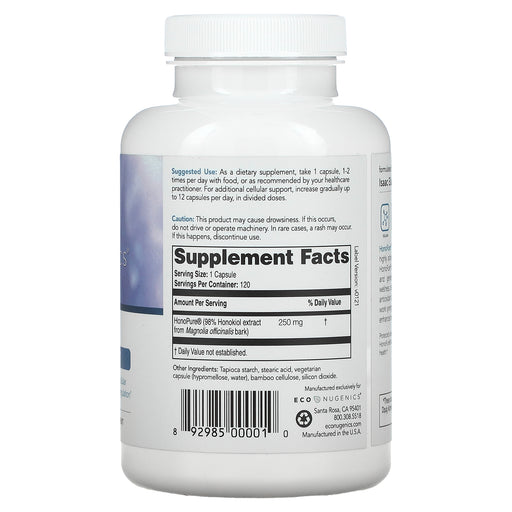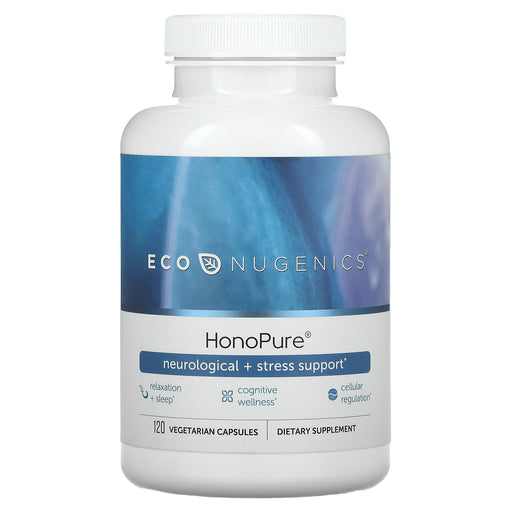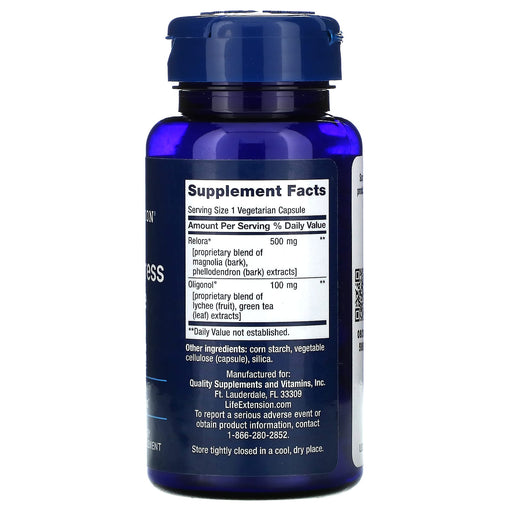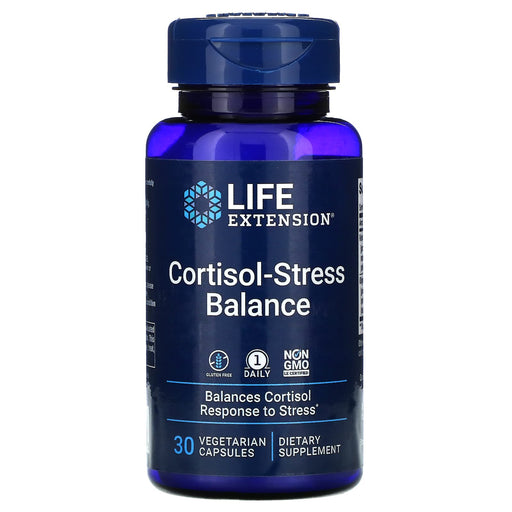
Find Calm and Balance with Magnolia Bark (Relora): The Natural Solution for Stress, Anxiety, and Emotional Well-Being
Magnolia bark, particularly in the form of the proprietary extract Relora, has gained significant attention in recent years for its powerful stress-reducing and mood-supporting properties. Derived from the bark of the magnolia tree (Magnolia officinalis), this natural remedy has been used for centuries in traditional Chinese medicine to promote relaxation, alleviate anxiety, and support overall emotional well-being. By incorporating magnolia bark (Relora) supplements into your wellness routine, you can tap into the calming benefits of this ancient botanical and cultivate a greater sense of inner peace and balance.
The Science Behind Magnolia Bark's Stress-Reducing Properties
Magnolia bark's remarkable ability to promote relaxation and reduce stress can be attributed to its unique blend of bioactive compounds, particularly honokiol and magnolol. These compounds have been extensively studied for their effects on the nervous system and their potential to modulate the body's stress response. The key mechanisms behind magnolia bark's stress-reducing properties include:
- GABA Modulation: Honokiol and magnolol have been shown to enhance the activity of GABA (gamma-aminobutyric acid), the primary inhibitory neurotransmitter in the brain. By increasing GABA activity, magnolia bark helps promote a sense of calm, reduce feelings of anxiety, and support a balanced mood.
- Cortisol Regulation: Magnolia bark has been found to help regulate the production and secretion of cortisol, the body's primary stress hormone. By modulating cortisol levels, magnolia bark can help reduce the negative impacts of chronic stress on both physical and mental health.
- Serotonin and Dopamine Support: Some studies suggest that magnolia bark may help support the production and function of serotonin and dopamine, two key neurotransmitters involved in mood regulation, reward, and emotional well-being.
- Neuroprotection: The bioactive compounds in magnolia bark have been shown to possess potent antioxidant and anti-inflammatory properties, helping to protect brain cells from oxidative stress and inflammation, which can contribute to mood imbalances and cognitive decline.
The Potential Benefits of Magnolia Bark (Relora) Supplementation
Incorporating magnolia bark (Relora) supplements into your daily routine may offer a wide range of potential benefits for stress management, emotional well-being, and overall health. Some of the key benefits of magnolia bark (Relora) include:
- Stress Reduction: By modulating the body's stress response and promoting a sense of calm, magnolia bark (Relora) can help reduce the negative impacts of chronic stress on both physical and mental health, leading to improved overall well-being.
- Anxiety Relief: Magnolia bark's ability to enhance GABA activity and support a balanced mood may help alleviate symptoms of anxiety, promoting a greater sense of inner peace and tranquility.
- Improved Sleep Quality: The calming effects of magnolia bark (Relora) can help promote more restful and restorative sleep, reducing the time it takes to fall asleep and enhancing overall sleep quality.
- Mood Support: By supporting the production and function of key mood-regulating neurotransmitters, such as serotonin and dopamine, magnolia bark (Relora) may help promote a more positive and balanced emotional state.
- Cognitive Health: The neuroprotective properties of magnolia bark's bioactive compounds may help support brain health, cognitive function, and overall mental clarity, particularly in the face of stress and age-related cognitive decline.
Choosing the Right Magnolia Bark (Relora) Supplement
When selecting a magnolia bark (Relora) supplement, it's essential to choose a high-quality product from a reputable brand. Look for supplements that:
- Contain a standardized extract of magnolia bark, such as Relora, to ensure consistent levels of the active compounds honokiol and magnolol
- Provide a clinically effective dosage, typically ranging from 200mg to 500mg per day, taken in divided doses
- Are manufactured in GMP-certified facilities to ensure purity, potency, and safety
- Are free from unnecessary additives, fillers, and allergens
- Are backed by positive customer reviews and have a proven track record of efficacy
As with any new supplement regimen, it's essential to consult with a healthcare professional before starting magnolia bark (Relora) supplementation, especially if you have a pre-existing health condition, are pregnant or nursing, or are taking medications.
Related Vitamins and Supplements
While magnolia bark (Relora) is a powerful stress-reducing and mood-supporting supplement on its own, certain vitamins and supplements can complement its benefits and support overall emotional well-being. Some relevant options to consider alongside magnolia bark (Relora) include:
- B-Complex Vitamins: These essential vitamins support healthy nervous system function, energy production, and stress management, working synergistically with magnolia bark to promote emotional balance and resilience.
- Omega-3 Fatty Acids: These anti-inflammatory fats support brain health, neurotransmitter function, and mood regulation, enhancing the calming and neuroprotective effects of magnolia bark.
- L-theanine: This amino acid, found naturally in green tea, promotes relaxation and reduces stress and anxiety, complementing the stress-reducing benefits of magnolia bark.
- Ashwagandha: This adaptogenic herb helps the body cope with stress, promotes a sense of calm, and supports overall emotional well-being, making it an excellent companion to magnolia bark (Relora) supplementation.
Experience the Calming Power of Magnolia Bark (Relora)
At Health Orchard, we are dedicated to providing our customers with the highest quality magnolia bark (Relora) supplements to support stress reduction, emotional well-being, and overall health. Our carefully curated selection features magnolia bark (Relora) products from trusted brands, formulated with standardized extracts and pure, potent ingredients for optimal efficacy and safety.
Whether you're looking to reduce stress, alleviate anxiety, improve sleep quality, support a balanced mood, or simply promote greater inner peace and tranquility, our magnolia bark (Relora) supplement collection has the perfect product to meet your unique needs and goals.
Witness the ancient wisdom and calming power of magnolia bark and experience the difference it can make in your journey towards optimal emotional well-being and stress resilience. Browse our selection today and take the first step towards cultivating a greater sense of calm, balance, and vitality with this remarkable natural remedy.
Frequently Asked Questions about Magnolia Bark (Relora)
1. What is magnolia bark supplement good for?
Magnolia bark, often found in supplements like Relora, is believed to offer several potential benefits:
- Reduces stress, anxiety, and nervous tension
- Promotes relaxation and calmness without causing drowsiness
- Supports healthy cortisol levels, a stress hormone
- May help with weight management by reducing stress-related eating and cravings
- Supports restful sleep and may help with insomnia
- Offers antioxidant and anti-inflammatory properties
- May help with digestive issues related to stress, such as upset stomach or bloating
The primary active compounds in magnolia bark, honokiol and magnolol, are thought to interact with GABA receptors in the brain, promoting relaxation and stress relief.
2. What is relora supplement used for?
Relora is a proprietary blend of magnolia bark and phellodendron bark extracts, commonly used as a natural stress-relief supplement. People may take Relora for the following reasons:
- To manage stress, anxiety, and tension
- To promote a calm and relaxed state without causing drowsiness
- To support healthy cortisol levels and minimize stress-related weight gain
- To reduce stress-related eating and food cravings
- To improve sleep quality and address mild insomnia
- To alleviate digestive issues related to stress, such as bloating or upset stomach
Relora is often marketed as a natural alternative to anti-anxiety medications, although more research is needed to fully understand its effects and long-term safety.
3. Who should not take magnolia bark?
While magnolia bark supplements like Relora are generally considered safe, some people should avoid them or consult with a healthcare professional before use:
- Pregnant or breastfeeding women, due to limited safety data
- Children, as the safety and appropriate dosage have not been established
- Individuals with pre-existing medical conditions, particularly those affecting the liver or kidneys
- People taking sedative medications, such as benzodiazepines or barbiturates, as magnolia bark may enhance their effects
- Those scheduled for surgery, as magnolia bark may interact with anesthesia and other medications used during and after the procedure
- Individuals taking blood-thinning medications, as magnolia bark may increase the risk of bleeding
It is always best to consult with a healthcare professional before starting any new supplement, especially if you have concerns about potential interactions or contraindications.
4. What are the side effects of magnolia bark?
Magnolia bark supplements, such as Relora, are generally well-tolerated when taken in recommended doses. However, some people may experience side effects, including:
- Digestive issues, such as nausea, diarrhea, or abdominal discomfort
- Headache or dizziness
- Drowsiness or fatigue, especially when taken in high doses
- Allergic reactions, such as skin rash or itching (rare)
- Interactions with certain medications, such as sedatives or blood thinners
5. What does magnolia bark do to the brain?
Magnolia bark, and its active compounds honokiol and magnolol, are believed to interact with GABA receptors in the brain, which are responsible for promoting relaxation and reducing anxiety. By enhancing GABA activity, magnolia bark may help to calm the nervous system, reduce stress and tension, and promote a sense of well-being. Additionally, magnolia bark may help to regulate cortisol levels, a stress hormone that can have negative effects on the brain when chronically elevated. Some research also suggests that magnolia bark may have neuroprotective properties, helping to shield brain cells from damage caused by oxidative stress and inflammation. However, more research is needed to fully understand the effects of magnolia bark on brain function and long-term cognitive health.
6. How much magnolia bark can you take a day?
The recommended dosage of magnolia bark supplements, such as Relora, may vary depending on the specific product and individual needs. Generally, a daily dose of 200-800mg of magnolia bark extract is considered safe and effective for most people. It is essential to follow the dosage instructions provided by the manufacturer or consult with a healthcare professional for personalized guidance. When starting with magnolia bark supplements, it is best to begin with the lowest recommended dose and gradually increase as needed and tolerated. Taking magnolia bark supplements with food may help to minimize the risk of digestive side effects. It is also important to note that the long-term safety of high doses of magnolia bark has not been extensively studied, so it is crucial to use this supplement responsibly and under the guidance of a healthcare provider.












